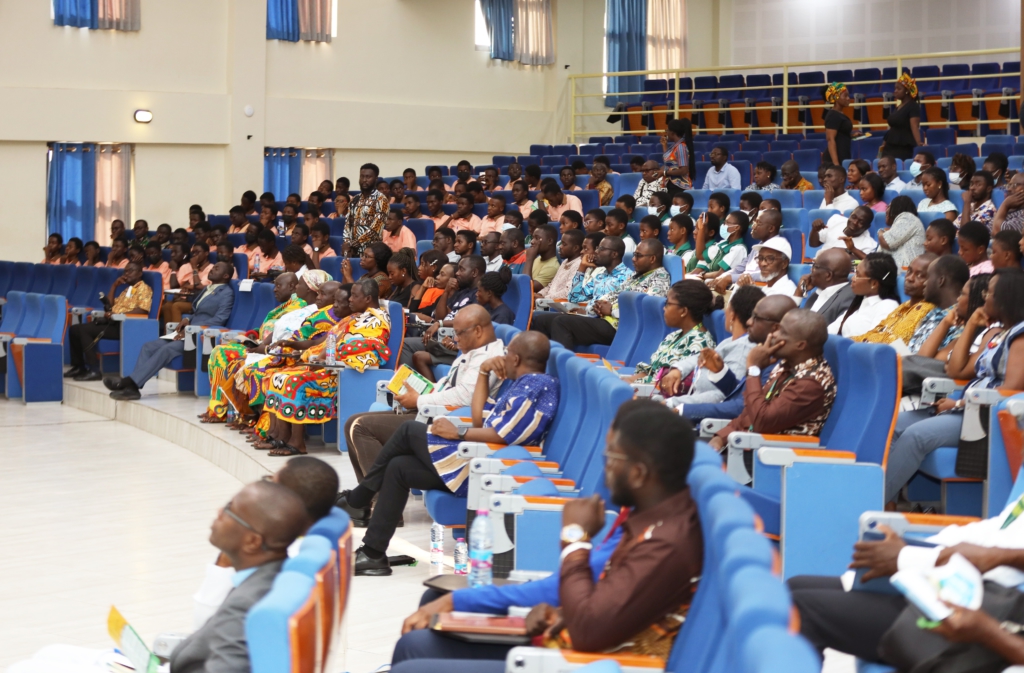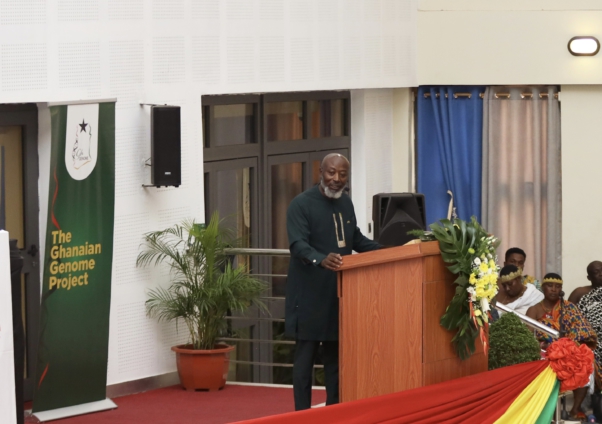Director of the Ghanaian Genome Project, Professor Fiifi Ofori-Acquah, has stressed the need for Ghanaians to deepen their knowledge of the sickle cell disease.
He said this will help stop families from breaking apart and the needless accusation of relatives of being responsible for the disease.
Prof. Ofori-Acquah explained that the burden of undiagnosed genetic diseases, low information, and family discourse has triggered unhappiness among some Ghanaian families with the disease.
To understand the disease, therefore, one must be able to appreciate the interaction between genes, lifestyle, and the environment, to offer help to people, especially kids, who are helpless in this country.
Prof Ofori-Acquah was speaking at a public lecture on the Ghanaian Genome (GhGenome) Project at the Kwame Nkrumah University of Science and Technology (KNUST), Kumasi.

Sickle Cell Disease (SCD) caused by inheritance of one sickle cell mutation, according to him, is the most common genetic disease and most of the cases are in Africa.
Over one percent of all babies with SCD have one parent who is negative for the sickle cell mutation; non-paternity may be assumed wrongly to be the reason for this phenomenon in most cases.
In Ghana, one out of every 50 babies born has sickle cell disease.
He said it is, therefore, the duty of experts to decode the Ghanaian genome to help people embrace sick conditions.
Prof Ofori-Acquah said Ghana ought to develop genetic programmes to diagnose rare diseases and to identify mutations that drive childhood cancers, adding that, it is a major developmental health challenge.
He mentioned that the West African Genetic Medicine Center and the African Center of Excellence have put up proposals to address developmental health challenges.
“A developmental challenge is a genetic disorder, and this can be done, but cannot be done alone in the universities or laboratory, this requires a national conversation,” he observed.
Over 400 children in Ghana are diagnosed with cancer every year - lymphomas and leukaemia (40 percent), RB1 gene mutations (15 percent), Wilms tumour (15 percent) and others constitute 30 percent.
He pointed out that the lack of genetic testing in Ghana means a death sentence for many children diagnosed with childhood cancers, saying “it is our duty to decode the mutations that cause childhood cancers in Ghana.”
The GhGenome Project is focused on training, research, as well as public and community engagement in all aspects of the human genome in Ghana.
Latest Stories
-
Expansion Drive: Takoradi Technical University increases faculties
4 hours -
SHS heads demand payment of outstanding funds before reopening of schools
4 hours -
We thank God for the 2024 general elections – Akufo-Addo
4 hours -
Coconut Grove Beach Resort marks 30 years of excellence with memorable 9 lessons & carols service
5 hours -
WAFU B U-17 Girls’ Cup: Black Maidens beat Nigeria on penalties to win inaugral tournament
5 hours -
Real Madrid beat Sevilla to keep pressure on leaders Atletico
6 hours -
Liverpool put six past Spurs to go four points clear
7 hours -
Manchester United lose 3-0 at home to Bournemouth yet again
7 hours -
CHAN 2024Q: ‘It’s still an open game’ – Didi on Ghana’s draw with Nigeria
7 hours -
CHAN 2024Q: Ghana’s Black Galaxies held by Nigeria in first-leg tie
8 hours -
Dr Nduom hopeful defunct GN bank will be restored under Mahama administration
8 hours -
Bridget Bonnie celebrates NDC Victory, champions hope for women and youth
8 hours -
Shamima Muslim urges youth to lead Ghana’s renewal at 18Plus4NDC anniversary
9 hours -
Akufo-Addo condemns post-election violence, blames NDC
10 hours -
DAMC, Free Food Company, to distribute 10,000 packs of food to street kids
11 hours

